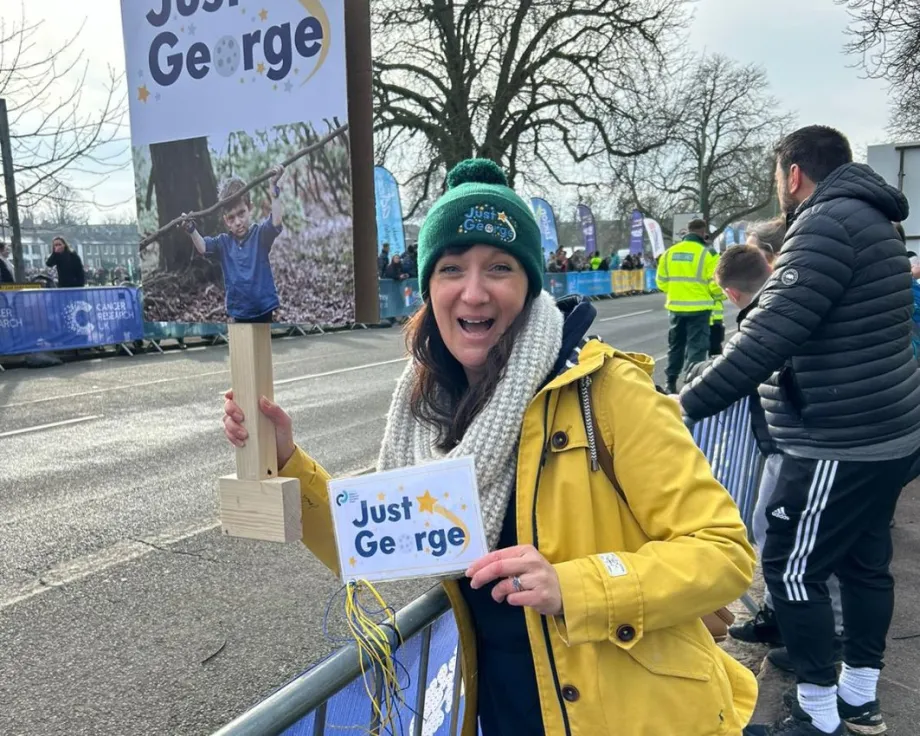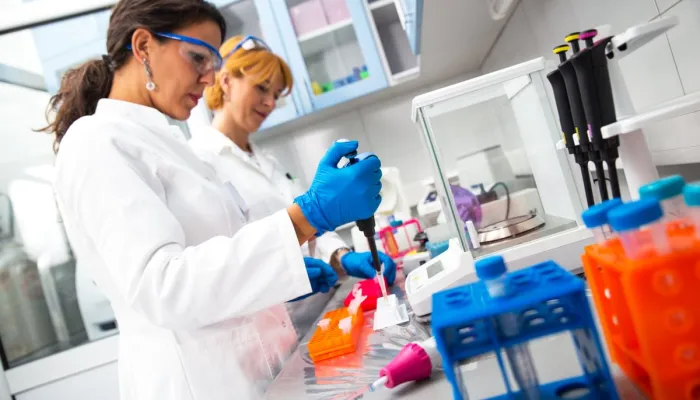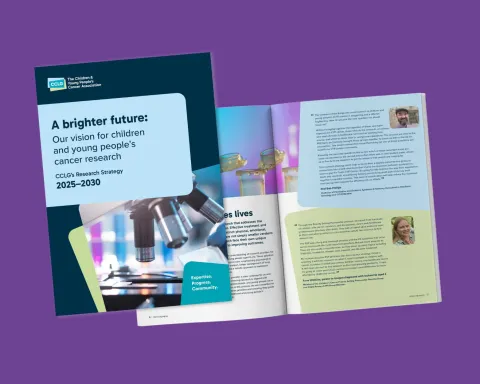For the first time, our strategy will encompass cancers affecting teenagers and young adults and will span the full spectrum of our research activities, from funding ground-breaking projects to leading and influencing the future of cancer research.
The strategy is further intended to inspire and support the growth of the CYP cancer research field, bringing together funders, researchers, patients, survivors and families. With the publication of the top 10 research priorities for childhood cancer in 2023, now is the perfect time to ensure that our research activities reflect the needs of our diverse community.
Ashley Ball-Gamble, CEO of CCLG, said:
Our strategy marks a turning point for children and young people’s cancer research. It’s not just words on a page, it’s a commitment to action and collaboration, a focused vision for research that will deliver real impact. With it, we hope to lead progress into safer and more effective treatments, care, and support.
At the heart of the progressive strategy are our four key ambitions. We aim to:
- develop a coordinated, collaborative approach to CYP cancer research
- fund the best research, led by the best minds
- put lived experience at the heart of CYP cancer research
- support a thriving CYP cancer research community
The updated strategy renews our commitment to being inclusive for all types of research and researcher, funding underserved areas, and focusing on the issues that matter most to patients and families.
Dr Becky Hill, Co-Chair of CCLG’s Research Advisory Group, said:
Our diverse community will bring together experts from different tumour groups, training backgrounds, and career stages. Coupled with our strategy to harness lived experience, we will develop a collaborative community with a renewed focus and motivation, where new ideas can foster innovation in all areas of research.
Lisa Radcliffe became involved in CCLG’s work after her son George was diagnosed with rhabdomyosarcoma in 2022, at three years old. George died just over a year later, in October 2023, after the cancer spread and there were no further treatment options. Lisa and her husband David set up the Just George Special Named Fund in memory of George, which has now raised almost £200,000 for research into rhabdomyosarcoma.

Lisa Radcliffe, George's mum and lead of the Just George Special Named Fund.
In addition her fundraising, Lisa joined CCLG’s Patient and Public Involvement (PPI) group so that she could have a say in the direction of CYP research. Her experience, together with that of other families, has helped shape the core of the new research strategy.
Lisa feels strongly that families like hers need to feel that their child’s experience was not in vain. She said:
We want to be heard and seen, and to know that we can help make a difference. The process of building this strategy, with CCLG, is just the start of lived experiences being at the heart of children and young people‘s cancer research. It gives us hope when, for some of us, hope was taken away by cancer.
Lisa believes CCLG’s role in bringing together CYP cancer organisations to progress research is particularly important.
She said: “Without drive and coordinated, collaborative approaches, childhood cancer research could continue in isolation with little advancement. Organisations with joint goals and priorities must work together, share expertise and be committed to driving progress as one network.”
Sarah Evans, Head of Research at CCLG, concluded:
We won’t stop our vital work until every patient has a safe and effective cure for their cancer. With this five-year strategy, we reaffirm this commitment to improving outcomes for all children and young people with cancer through science, collaboration, and lived experience.

Find out more about our strategy
Learn how we will address our four key ambitions and how this will help children and young people with cancer.


